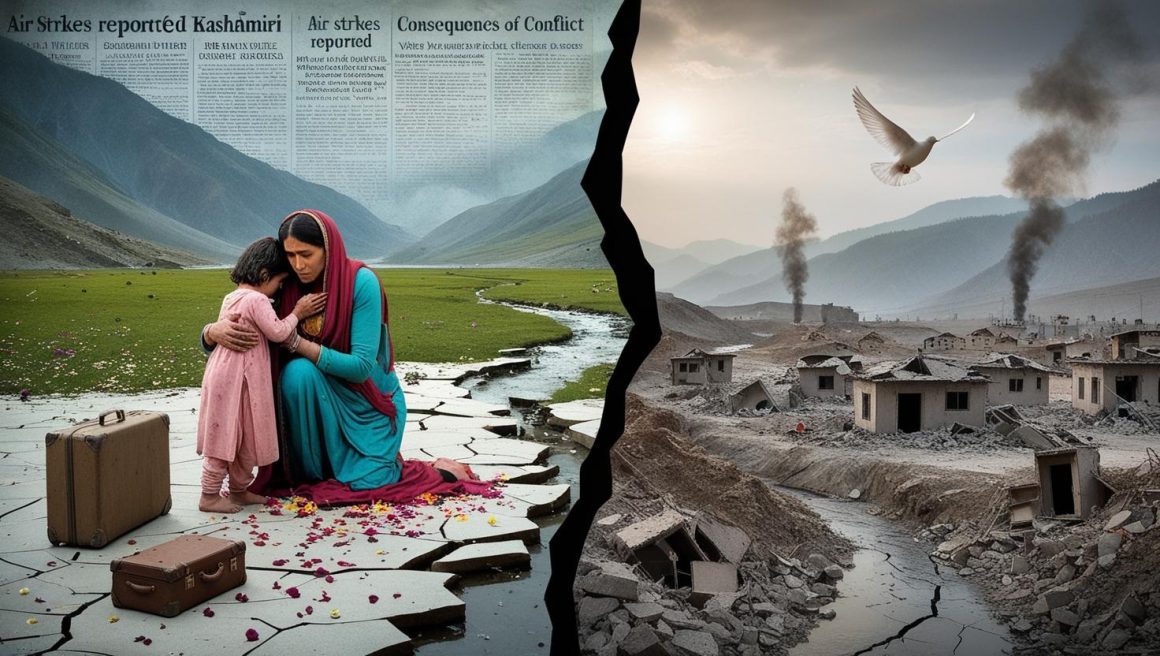On the morning of 22 April 2025, something inside me broke.
In a quiet valley near Pahalgam, Jammu and Kashmir—a place known for its beauty and serenity—five armed militants opened fire on non-Muslim male tourists. Twenty-six men, on pilgrimage and vacation, were brutally gunned down in front of their families—wives, children, parents—who could do nothing but scream and watch.
There are no words for the horror.
Only silence. And grief.
Just days later, India responded with airstrikes across the border in Pakistan, reportedly targeting nine suspected terrorist camps. The response was lauded by politicians and media alike—phrases like “swift and decisive,” “surgical precision,” and “brave retaliation” flooded the airwaves.
But I feel no triumph.
Only a deep, raw sorrow.
Because even as one side strikes, the other side prepares to strike back. And so the cycle continues—not a path to peace, but a spiral into more loss, more heartbreak, more lives caught in the crossfire.
“Because war is not tit for tat.
It never has been.”
We are not balancing grief—we are burying human beings.
Every time we respond to violence with more violence, we tear at the fragile fabric of our shared humanity.
The civilians who died in Pahalgam did not deserve that fate.
But neither do the civilians—on either side of the border. Instead, they all now live in fear, or worse, will lose their lives in the name of revenge.
Have we learned nothing from Gaza, Ukraine, Syria, Sudan, Afghanistan?
In every conflict, we see the same outcomes:
Burned homes. Children with haunted eyes. Generations carrying trauma like shadows. Hatred hardening into stone.
And yet, we keep choosing this path.
We are being divided—artificially and deliberately.
We are taught to hate.
Taught to forget our shared past.
Taught to carry wounds we did not inflict, and to fight wars we did not choose.
This hatred is not accidental—it is cultivated.
By those who benefit from fear, who rewrite history, who turn grief into ammunition for politics.
They erase the fact that we once lived together, that rivers flow across borders, that the air we breathe, the water we drink, the soil we till; they all blend seamlessly across countries once undivided.
India and Pakistan were not born enemies.
Our languages, songs, spices, sorrows, they all carry the same roots.
Just as people in Gaza, Ukraine, and elsewhere bleed and mourn the same way.
“Violence has never brought real peace.
War has never left anyone whole—only wounded.”
Let us not glorify airstrikes. Let us not cheer destruction while mothers gather broken lives from blood-soaked earth.
Because true peace is not the eerie silence after a bomb falls.
It is the justice, dignity, and dialogue that make bombs unnecessary.
Justice is not revenge.
Peace is not weakness.
And strength is not the capacity to destroy—but the courage to choose a different path.
We must ask:
Are we solving the problem—or feeding it?
Why is violence our first answer?
Where is the empathy and moral leadership this region so desperately needs?
We don’t need more weapons.
We need more compassion.
The kind that builds bridges, not bombs.
The kind that says: Enough. No more blood for politics.
As a woman, as a South Asian, as a human being,
I cannot, and will not, be silent when the cost of our power games is paid in the lives of the powerless.
Let us grieve. Let us speak.
But let us not lose our soul in the process.
Because in war, there are no real winners, but only survivors carrying scars we refuse to see.
***
References for Context and Reflection:
- Johan Galtung’s Positive Peace framework (founder of peace studies)
- Martin Luther King Jr.: “Returning hate for hate multiplies hate”
- UN civilian casualty reports in retaliatory conflicts (e.g., Gaza-Israel, Russia-Ukraine)
- Truth & Reconciliation models: South Africa, Rwanda
- BBC & Al Jazeera reporting on the Pahalgam attack (22 April 2025) and subsequent Indian strikes (May 2025)



